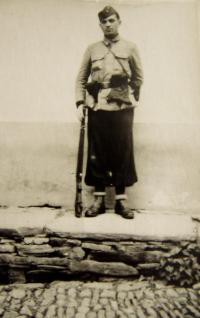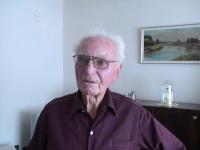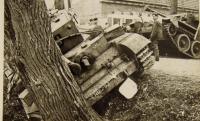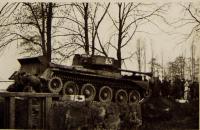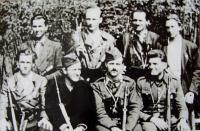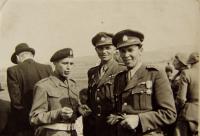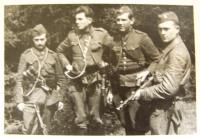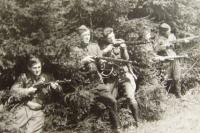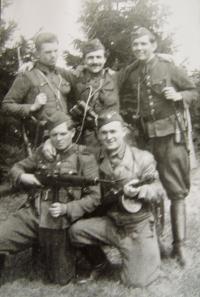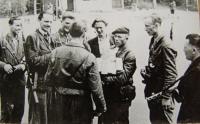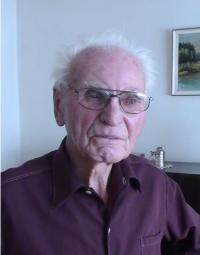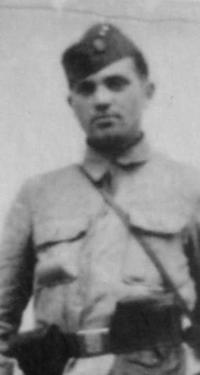Guerilla war is all the more complicated in that the enemy can be all around you

Stáhnout obrázek
Čestmír Smolka was born on 2 January 1924 in Drahotuše (Hranice District). He trained as a mechanic at the Vsetín Arms Works, he was employed in Lutín from 1943 to 1944, when he was assigned to forced labour in Austria with others born in the same year. He worked in Wiener Neustadt, at a factory producing Messerschmitt aeroplanes. That same year he fled back to Moravia, where he took part in the anti-German resistance - he joined the First Czechoslovak Brigade of Jan Žižka under the command of D. B. Murzin and Petr Moskalenko. The group‘s resistance activities centred around efforts to sabotage the German forces retreating from Slovakia; they also raided gendarme stations. The Smolka‘s house served as a depot for ammunition and explosives. Unfortunately, when preparing one such sabotage mission, Čestmír Smolka‘s family were killed by an accidental explosion. After the end of the war in 1945, he applied to a military academy, which he completed in 1947. He served as a full-time soldier until 1981. Čestmír Smolka died on 20 June 2018.
